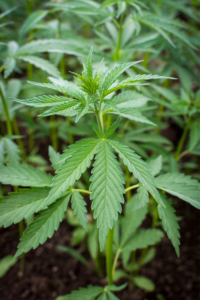The rise of CBD as a wellness solution has been nothing short of revolutionary. From addressing mood swings to potentially aiding ADHD, CBD products have found their way into the daily routines of many seeking natural remedies. But like any revolution, this one faces its share of hurdles. Recent legislative developments, especially those surrounding the Farm Bill, pose significant challenges to the CBD industry’s future.
The CBD Craze Explained
CBD, short for cannabidiol, is one of over a hundred cannabinoids found in cannabis plants. Unlike its psychoactive counterpart THC, CBD doesn’t make users high. Instead, it’s celebrated for its potential therapeutic benefits, including pain relief and anxiety reduction. The last decade has seen an explosion in CBD products, from oils and tinctures to edibles and topical creams.
CBD’s popularity isn’t just a passing trend; it’s rooted in science. Studies have shown that CBD may help regulate mood, reduce inflammation, and may even alleviate symptoms of certain neurological conditions. For many, it has become a key part of their wellness regimen, offering a natural alternative to pharmaceuticals.
The Impact of the Farm Bill Amendment
Enter the Farm Bill. Initially hailed as a landmark piece of legislation for the hemp industry, recent proposed amendments could restrict CBD’s accessibility. The amendment seeks to redefine legal parameters for hemp-derived products, potentially altering how CBD is sold and consumed.
For businesses like 812 Hemp and Mireya Extracts, this represents a significant challenge. Their commitment to providing top-quality, ethically sourced CBD products might face roadblocks if the amendment tightens regulations. This could affect not only businesses but also the countless individuals who rely on CBD for their well-being.
CBD and ADHD
One of the lesser-known yet promising applications of CBD is its potential role in managing ADHD. Attention Deficit Hyperactivity Disorder (ADHD) affects millions globally, impacting focus and behavioral control. While traditional treatments often involve medications with side effects, CBD offers a gentler alternative.
Studies suggest that CBD might help reduce hyperactivity and improve concentration. For those with ADHD, this could mean better performance at school or work. However, it’s essential to emphasize that CBD isn’t a cure-all. Those considering it should consult healthcare professionals to ensure it’s suitable for their needs.
CBD for Depression and Mood Swings
Mood disorders, including depression, affect a significant portion of the population. Traditional treatments can sometimes fall short, leaving individuals searching for alternatives. Enter CBD.
Research indicates that CBD may influence serotonin levels in the brain, a key neurotransmitter regulating mood. By potentially boosting serotonin, CBD might help alleviate feelings of depression and stabilize mood swings. It’s crucial, however, to approach CBD as a supplement rather than a primary treatment and to seek professional guidance when integrating it into a wellness plan.
The Role of CBD in Anxiety Management
Anxiety disorders are among the most common mental health issues worldwide. For many, the idea of using CBD as an anxiety management tool is appealing. Unlike some anti-anxiety medications, CBD offers a natural approach with fewer side effects.
CBD’s anxiolytic (anxiety-reducing) properties stem from its interaction with the body’s endocannabinoid system. By influencing receptors in the brain, CBD may help reduce the overactivity that characterizes anxiety disorders. Users often report a sense of calm and relaxation, making CBD a popular choice for those seeking to manage their anxiety naturally.
Legal Challenges and Market Dynamics
The evolving legal landscape surrounding CBD is a double-edged sword. On one hand, increased regulation aims to ensure product quality and consumer safety. On the other, it can stifle innovation and limit access to beneficial products.
Brands like Mireya Extracts emphasize transparency and quality assurance, offering third-party lab testing and federally compliant products. However, stricter regulations could impact their ability to operate freely, potentially reducing the variety and availability of CBD products on the market.
The Future of CBD in Wellness
Despite the challenges, the future of CBD in wellness looks promising. Continued research and consumer advocacy can help bridge the gap between regulatory bodies and the market. By prioritizing education and transparency, the industry can ensure that consumers have access to safe, effective products.
For those considering CBD as part of their wellness routine, staying informed is key. Understanding the potential benefits, risks, and legal landscape will empower consumers to make educated decisions about their health.
Building a CBD Community
One of the most exciting aspects of the CBD movement is the sense of community it fosters. Brands like 502 Hemp actively engage with their customers, creating spaces for sharing experiences and knowledge. This sense of belonging can enhance the overall wellness experience, offering support and camaraderie.
For users, becoming part of a CBD community means access to shared insights, product recommendations, and emotional support. It’s a reminder that wellness is a collective journey, not a solitary endeavor.
Conclusion
The world of CBD is as dynamic as it is promising. From its potential benefits for mental health to the challenges posed by new legislation, the landscape is continually evolving. For consumers, staying informed and connected is crucial.
By understanding the complexities of CBD and the factors influencing its availability, individuals can make informed choices that align with their wellness goals. Whether you’re considering CBD for ADHD, mood swings, or general well-being, knowledge is your best ally. Stay curious, stay informed, and explore the potential of CBD in your wellness journey.
*The statements made regarding these products have not been evaluated by the Food and Drug Administration. The efficacy of these products has not been confirmed by FDA-approved research. These products are not intended to diagnose, treat, cure or prevent any disease. All information presented here is not meant as a substitute for or alternative to information from healthcare practitioners. Please consult your healthcare professional about potential interactions or other possible complications before using any product. The Federal Food, Drug, and Cosmetic Act requires this notice.



